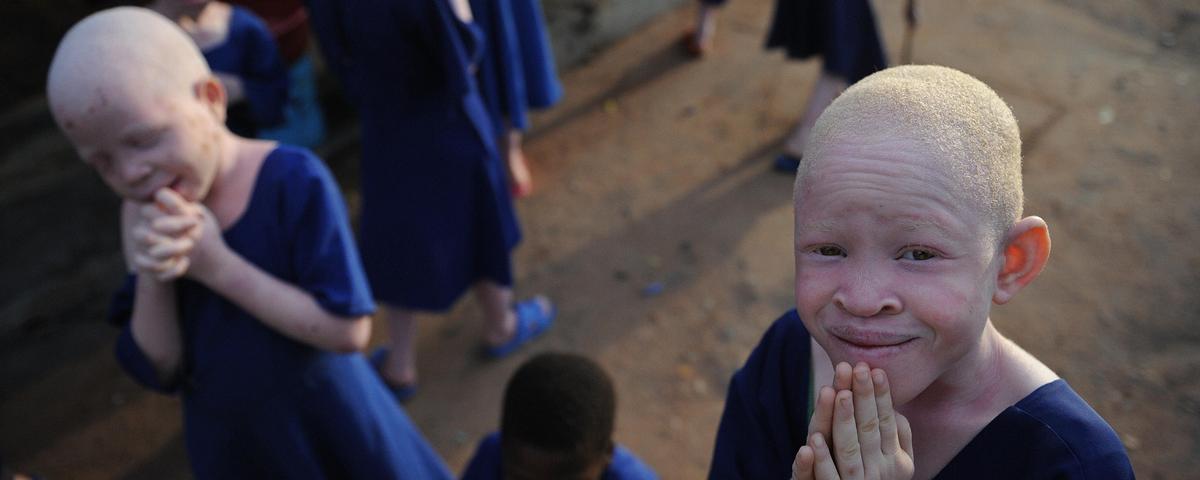Four Tanzanian children with albinism, who lost limbs in brutal superstition-driven attacks, arrived in the United States on Saturday for medical treatment and respite from a homeland where they are persecuted and feared.
Weary from travel, the four stepped off a jet at John F. Kennedy International Airport, where Elissa Montanti, founder of the Global Medical Relief Fund (GMRF), was waiting for them.
The New York-based GMRF hosts children from around the world who have been injured in conflict or disaster.
Many need prosthetics like the children from Tanzania, where people with albinism live in danger.
Their body parts are highly valued in witchcraft and can fetch a high price. Superstition leads many to believe they are ghosts who bring bad luck.
The children who arrived on Saturday were making a return trip, having outgrown prosthetics they received in the United States with the help of GMRF two years ago.
The oldest boy, 15-year-old Emmanuel Rutema, speaks with difficulty. His attackers chopped off one arm and the fingers of the other and tried to pull out his tongue and teeth.
“I’ve come back to get a new arm,” he said in Swahili through an interpreter, tugging at his empty shirtsleeve.
Baraka Lusambo, 7, grinned in obvious delight as he took in the bustling airport and swung from the arm of a U.S. Customs and Border Protection officer.
Mwigulu Magesa, 14, and Pendo Noni, 17, hung back, shyly seeking reassurance from Ester Rwela, a social worker who traveled with them from Tanzania.
TIMID AND WARY
The children attend boarding school and live in so-called safe houses in Tanzania. They rarely go out in public because it frightens them, said Rwela, a social worker with Under the Same Sun, a charity that advocates for people with albinism.
“They’re traumatized. They’re still in fear. They don’t trust anyone,” she said.
GMRF in the last 20 years has hosted more than 200 children getting medical treatment, but the ones from Tanzania stand out, said Montanti.
“We’ve helped children who have stepped on landmines, children who have kicked a can and it exploded, a tsunami, typhoons, but this is so deliberate,” she said.
“When they first came they were extremely timid, no eye contact,” she said. “It was a matter of trust.
“We broke through that, and they know we’re friends. I’m overjoyed to have them back.”
The children are expected to stay about two months, getting medical treatment courtesy of the Shriners Hospital in Philadelphia.
Albinism is a congenital disorder affecting about one in 20,000 people worldwide who lack pigment in their skin, hair and eyes. It is more common in sub-Saharan Africa and affects about one Tanzanian in 1,400.
United Nations officials estimate at least 75 albinos were killed in the east African nation between 2000 and 2015.
They say the number of reported attacks represent just a fraction of the total as most are secretive rituals in rural areas.
According to the Office of the U.N. High Commissioner for Human Rights, the body parts are traded in a lucrative market for use in witchcraft. Reported prices range from $2,000 for a limb to $75,000 for a corpse.
Source: Thomson Reuters Foundation



